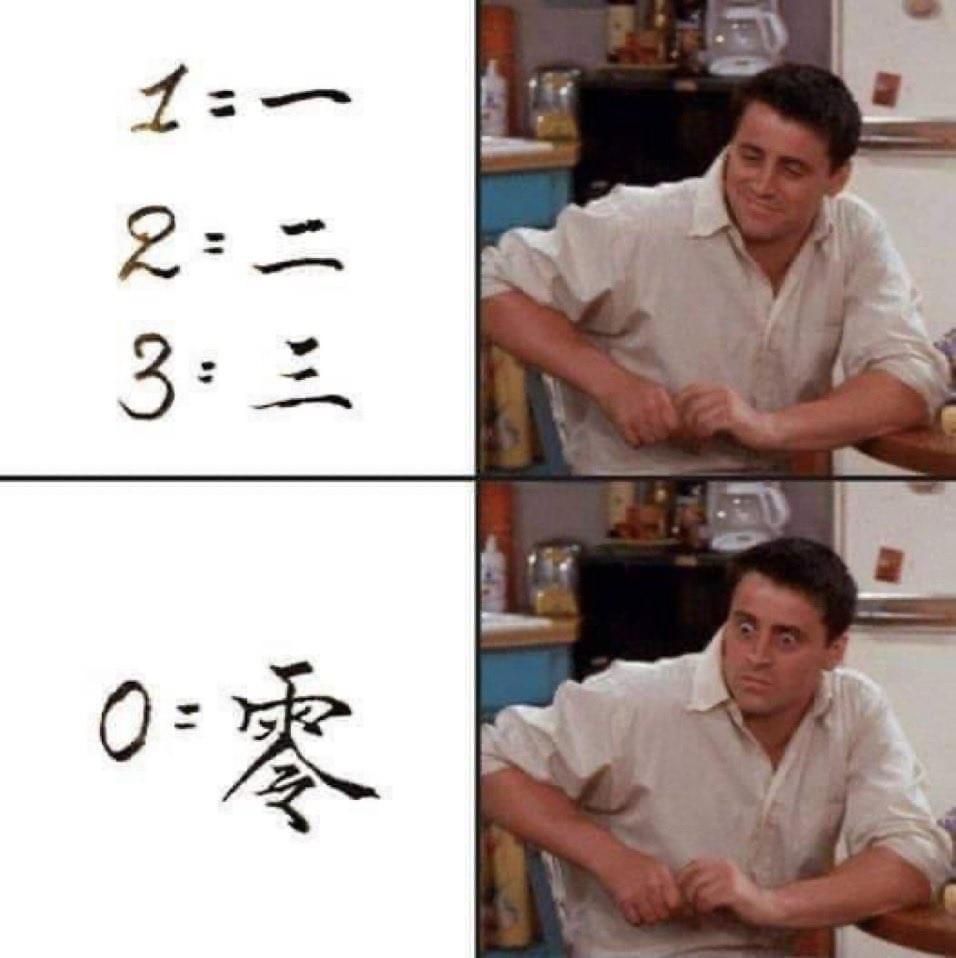this post was submitted on 29 Apr 2024
984 points (99.3% liked)
Memes
45745 readers
1408 users here now
Rules:
- Be civil and nice.
- Try not to excessively repost, as a rule of thumb, wait at least 2 months to do it if you have to.
founded 5 years ago
MODERATORS
you are viewing a single comment's thread
view the rest of the comments
view the rest of the comments

Hmmm, like death? as in cease to exist? Very interesting anyways.
No, death is 4 actually. Nobody knows why.
We do know why, it's because death 死 and four 四 have the same pronunciation sǐ in Chinese (and shi in Japanese).
No shit, but why is it a homophone with such a common word?
homophones are common in Chinese and Japanese because there's only so many potential readings of a hieroglyph, but each one has a different meaning
Sure, but they're often different enough to to be obvious in context, or similar enough to have a shared etymology.
Tones came later in Chinese, so when you have 2 homophones with similar meaning and different tones, they're usually from words that had 2 suffixes, which were later dropped, but the tone of first part remained, 买 and 卖 didn't end up with the same word by coincidence.
Every language has homophones. Even before tones were created, sometimes there are just coincidences. As far as I know, there's nothing to suggest that the number four and death are inherently related in some way. No one is suggesting that knead and need are related even though they sound the same, and lead (the act of leading) and lead (the metal) may happen to share a spelling but they're still completely different words.